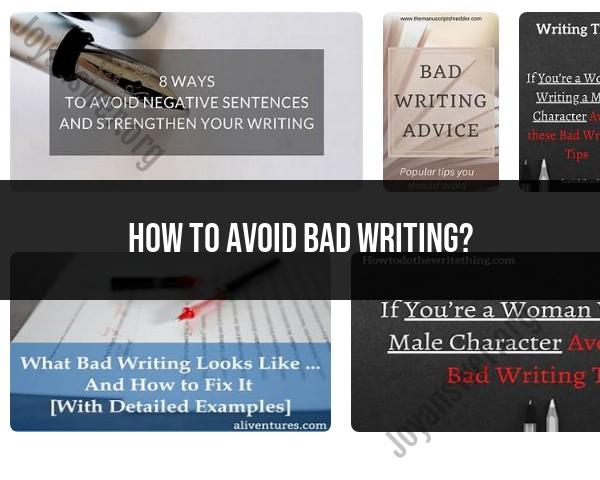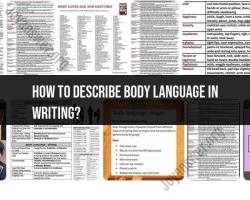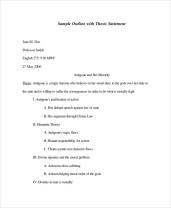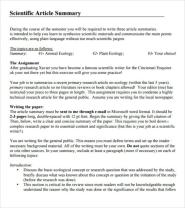How to avoid bad writing?
Avoiding poor writing and producing quality content involves several key principles and practices. Here are some tips to help you improve your writing and create more engaging, clear, and effective content:
Plan Your Writing:
- Before you start writing, outline your main ideas, structure, and key points. Having a plan will help you stay organized and focused.
Know Your Audience:
- Understand your target audience and their expectations. Tailor your writing style, tone, and content to meet their needs and interests.
Use Clear and Concise Language:
- Avoid jargon, excessive use of complex vocabulary, and overly long sentences. Write in a clear, concise, and straightforward manner.
Proofread and Edit:
- Always proofread your work for grammar, spelling, and punctuation errors. Editing helps improve clarity and coherence.
Avoid Redundancy:
- Eliminate unnecessary repetition or redundancy in your writing. Each word and sentence should contribute meaningfully to your content.
Stay Organized:
- Use logical structure and transitions to guide readers through your content. Organize your ideas in a coherent and easy-to-follow manner.
Use Active Voice:
- Prefer the active voice over the passive voice. Active sentences are generally more direct and engaging.
Vary Your Sentence Structure:
- Mix up your sentence structure to keep your writing interesting. Use a combination of short, long, simple, and complex sentences.
Show, Don't Tell:
- Instead of telling readers something directly, use descriptive language and examples to show it. This engages the reader more effectively.
Avoid Clichés and Overused Phrases:
- Be original in your writing and steer clear of clichés and overused expressions.
Provide Evidence and Support:
- Back up your claims and arguments with evidence, data, examples, and citations from reliable sources. This adds credibility to your content.
Maintain Consistency:
- Be consistent with your writing style, tone, and formatting throughout your content. Consistency makes your writing more polished.
Use Transition Words:
- Employ transition words and phrases (e.g., however, therefore, for example) to connect ideas and improve the flow of your writing.
Engage the Senses:
- When appropriate, incorporate sensory details (sight, sound, touch, taste, smell) to create a vivid and immersive experience for the reader.
Ask for Feedback:
- Seek feedback from peers, editors, or trusted readers. A fresh set of eyes can identify issues you might have missed.
Read Widely:
- Reading a variety of well-written materials, including books, articles, and essays, can expose you to different writing styles and techniques.
Practice Writing Regularly:
- Writing is a skill that improves with practice. Set aside time to write regularly to hone your abilities.
Be Patient:
- Quality writing often requires multiple drafts and revisions. Don't rush the process; take the time to refine your work.
By following these tips and continually working on your writing skills, you can significantly enhance the quality of your content and produce writing that is engaging, clear, and effective.
What are common mistakes and pitfalls to avoid in writing?
Some common mistakes and pitfalls to avoid in writing include:
- Grammatical errors: These include errors in subject-verb agreement, punctuation, and spelling.
- Poor sentence structure: Sentences should be clear, concise, and easy to read.
- Wordiness: Use precise and concise language, and avoid using unnecessary words and phrases.
- Passive voice: Use active voice whenever possible.
- Lack of clarity: Make sure your writing is clear and easy to understand.
- Lack of evidence: Support your claims with evidence from credible sources.
- Bias: Be objective and unbiased in your writing.
How to recognize and rectify bad writing habits in your work?
One way to recognize bad writing habits in your work is to ask yourself the following questions:
- Are my sentences clear and concise?
- Do I use the active voice whenever possible?
- Is my writing objective and unbiased?
- Do I support my claims with evidence from credible sources?
- Is my writing free of grammatical errors and typos?
If you answered no to any of these questions, you may have some bad writing habits that you need to rectify.
Here are some tips for rectifying bad writing habits:
- Proofread your work carefully before submitting it.
- Ask a friend or colleague to proofread your work.
- Use a grammar checker.
- Read books and articles about good writing.
- Take a writing class.
What tips and strategies can help improve the clarity and quality of your writing?
Here are some tips and strategies that can help improve the clarity and quality of your writing:
- Use strong verbs.
- Be specific and concise.
- Vary your sentence structure.
- Use transition words and phrases.
- Proofread your work carefully.
What role does proofreading and editing play in eliminating bad writing?
Proofreading and editing play an essential role in eliminating bad writing. Proofreading helps to identify and correct grammatical errors, typos, and other surface-level mistakes. Editing helps to improve the clarity, conciseness, and overall quality of the writing.
Where can you find resources and guidance on enhancing your writing skills?
There are many resources available to help you enhance your writing skills. Here are a few suggestions:
- Books and articles about good writing
- Online writing courses
- Writing workshops and seminars
- Feedback from other writers
By taking advantage of these resources, you can improve your writing skills and produce clear, concise, and persuasive writing.












